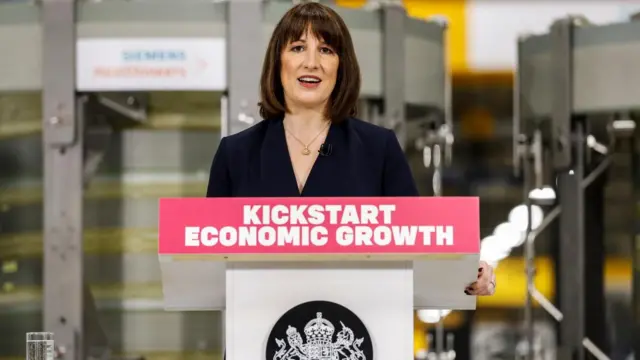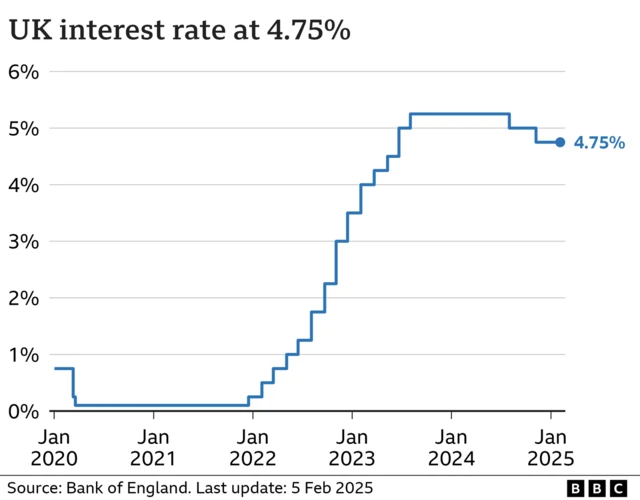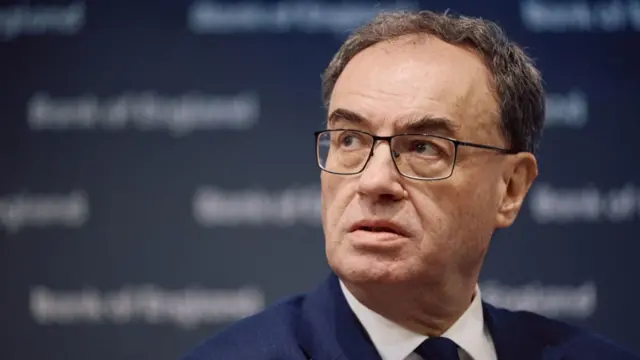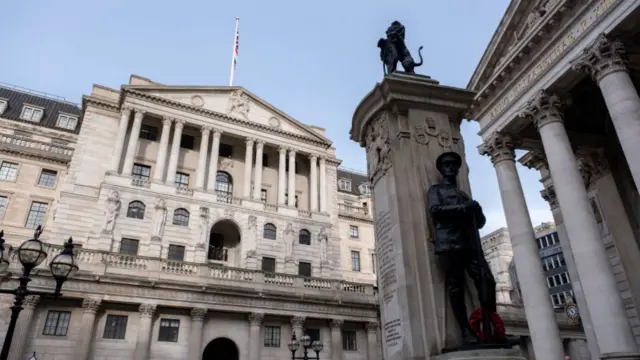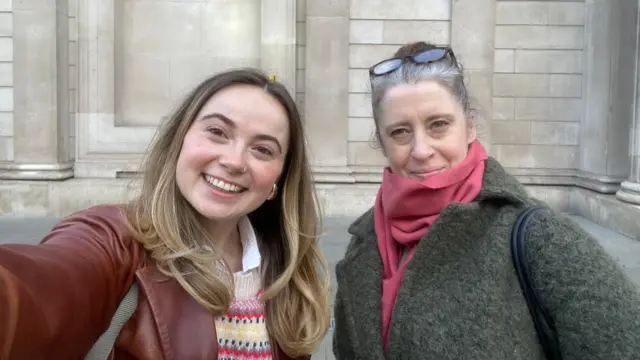UK will only narrowly avoid recession, Bank predictspublished at 12:25 GMT 6 February
Dearbail Jordan
Reporting from the Bank of England
Let’s now take a closer look at the Bank’s forecasts for the UK economy.
The UK will only narrowly avoid a recession, according to the forecasts, after the Bank downgraded its economic outlook in a blow for the government.
It has predicted that the economy shrank between October and December - first estimates will be coming out next week - and will grow only marginally in the first three months of this year.
Inflation is also expected to “rise quite sharply” later this year due to higher water bills, bus fares and energy costs and take longer to fall back to the Bank’s 2% target.
The government has made growing the economy one of its key policies, and last week Chancellor Rachel Reeves announced a number of potential projects and changes to planning rules to boost the UK’s performance.
However, the bank expects the economy will remain sluggish for some time.

